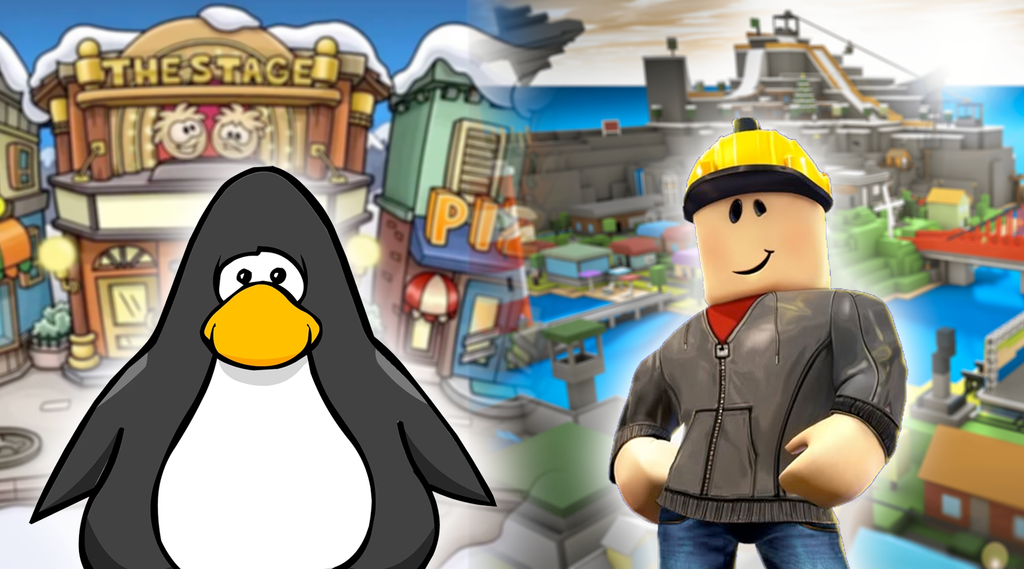
From Playing Club Penguin to Raising Kids With Roblox

The Standard For Child Safety In Online Gaming
Roblox likely tops the list of popular online games for kids today. Millennials aren't strangers to online games. For us, Club Penguin ruled the 2000s internet. Celebrated as one of the first kid-focused massively multiplayer online games (MMOs), Club Penguin set the standard for child safety in a way that still resonates with us. We have a unique opportunity to use our experiences and help our children navigate online gaming worlds like Roblox. We'll explore the evolution of child safety in games, the benefits of online games for kids, and how we can guide our kids to enjoy these experiences safely.

The Evolution of Child Safety in Games
Club Penguin’s success can largely be credited to its strong focus on child safety, making it a trustworthy platform in the eyes of parents. The game implemented systems to ensure safe online interactions remained secure. Players could choose between standard chat servers, which allowed free communication with filtered text, and ultimate safety chat servers, which restricted conversations to pre-approved phrases. Beyond this, the filtering system blocked inappropriate usernames and creatively spelled profanity. When a user attempts to type inappropriately, only they would see the message, effectively preventing harmful content from reaching others. The game also blocked the sharing of personal information, such as phone numbers and emails.
A dedicated team of moderators actively monitored the game’s world, with rule breakers facing temporary bans or even permanent suspension. To further incentivize safe behavior, Club Penguin encouraged users to report inappropriate conduct, offering recognition as part of the Elite Penguin Force (formerly Penguin Secret Agency) for those who upheld the community’s safety standards.

Roblox's Approach to Child Safety
While Club Penguin had a more controlled environment, Roblox is a platform that promotes user-generated content that isn't just designed for or by kids. That freedom comes with more challenges for keeping kids safe. Roblox uses automated filtering from Community Sift and human moderation to block inappropriate content on a larger scale. Parents also have more power to control who can message their kids, what games they can play, and even block in-game purchases. Younger players have safety settings on by default. With the high population, some content tends to slip through the cracks.
One big advantage Club Penguin had over Roblox is its incentive system, which rewarded players for reporting bad behavior. In contrast, Roblox relies on the community to flag inappropriate content without offering rewards, which can sometimes lead to slower action.

The Benefits Of Online Games For Kids:
People are quick to blame online gaming for issues like screen addiction, social skills problems, and bad behavior in kids. When we were kids, our parents said the same thing when we were glued to our Nintendo or PlayStation. While too much gaming can contribute to these issues, it's not always the main culprit. What often gets overlooked are the benefits that multiplayer gaming brings to our kids. Studies have shown that MMOs like Club Penguin can help develop literacy and communication skills through interactions with other players. The in-game activities also promote critical thinking and problem-solving, often requiring collaboration with others to complete challenges.
Roblox takes this a step further by emphasizing creativity and community building. The collaborative nature of the game encourages cognitive development and helps kids develop social skills. It’s similar to playing with classmates at school, but their imaginations have limitless boundaries in the game world. Kids can build and share their ideas in a way that isn’t always possible in the real world.
Additionally, both Roblox and Club Penguin have in-game economies that teach kids about currency and the value of work. They earn currency that can be traded for items, giving them a sense of how effort translates to rewards. Some might argue that players can buy more currency with real money, but that comes down to how much parents are willing to contribute to their child’s game. While there are plenty of benefits to online gaming, we can’t ignore the risks we faced years ago that our children still deal with today.

(AI Assisted)
How We Can Guide Our Kids To Enjoy These Experiences Safely
As millennial parents, we have the unique advantage of having grown up alongside the rise of online gaming and the internet. We know the potential dangers, but we also understand the amazing benefits that come with these platforms. How do we help our kids enjoy games like Roblox while keeping them safe? It starts with establishing healthy habits by encouraging activities away from the screen and getting them involved in offline activities to help prevent screen addiction. Communicating interest in their games is a non-instruvive approach to staying aware. Whether that means asking them about the games they love, watching them play, or even joining in, it also builds trust and reinforces our bonds.
The rise of user-generated content on platforms like Roblox brings with it a new level of freedom, but also new risks. Predators can sometimes use these spaces to try to approach kids. Having been through the wild west of early chat rooms and online forums, we’ve seen it before and can use that experience to guide our kids. Teaching them to recognize red flags—like strangers asking personal questions or making offers that seem too good to be true—helps them stay alert. We must encourage them to trust their instincts and report anything suspicious.
At the end of the day, parental controls are useful, but they work best when combined with open conversations. We can help our kids enjoy the many benefits of online gaming while navigating the risks wisely. After all, we’ve been through it ourselves, and now it’s our turn to pass that knowledge on to them.




















